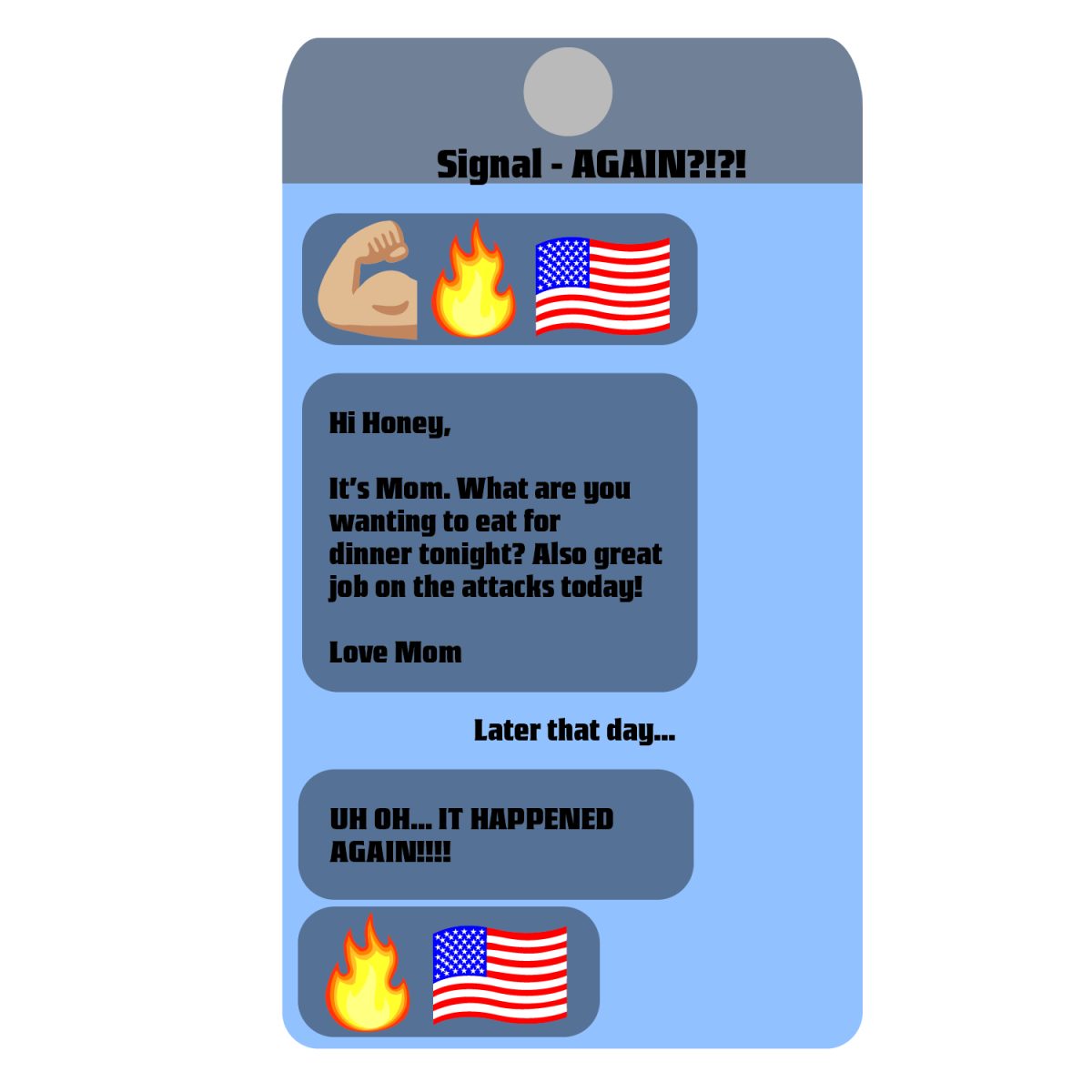In March, a major scandal known as “SignalGate” shook the Trump administration, raising serious concerns about national security and the mishandling of classified information. The incident, both absurd and deeply troubling, began when the editor of The Atlantic, a prominent national publication, was accidentally added to a Signal group chat that included several high-ranking members of President Trump’s inner circle.
At first, the editor assumed the invitation was a prank or a mistake. But as messages continued to pour in, many of them containing discussions related to national security, it became clear that the group was real and active. The individuals in the chat, which included senior aides, policy advisors and members of Trump’s re-election team, were openly discussing sensitive government matters on an unsecure, private messaging platform.
When The Atlantic published the revelation, the Trump administration attempted to downplay the story, calling it a “non-issue” and “sensationalized reporting.” However, screenshots provided by the editor validated the claims, making the defense difficult to maintain. The controversy ignited a media firestorm and drew criticism from security experts and lawmakers alike.
Then weeks later, the situation escalated with a second leak. Reports emerged that Hegseth had another Signal group chat in which he shared classified information with unauthorized individuals, including his wife, his personal attorney and his brother among a few. This violated multiple federal policies, including strict protocols barring the use of unsecured platforms for national security communications and prohibiting the use of personal devices to transmit classified material.
As news broke of Hegseth’s unauthorized communications, calls for his resignation quickly followed. Rumors swirled that President Trump had begun searching for a potential replacement. However, Trump vehemently denied the reports and reiterated his support for Hegseth, saying, “Pete is doing a tremendous job, and I fully stand by him.”
Still, the administration’s attempt to contain the fallout appears to be faltering. Three top officials were fired last week because of a leaked internal investigation related to the group chats, further fueling speculation of deep internal dysfunction. Meanwhile, Congressional support for the administration’s handling of the matter is weakening, with several Republican lawmakers privately expressing frustration over the lack of oversight and professionalism.




